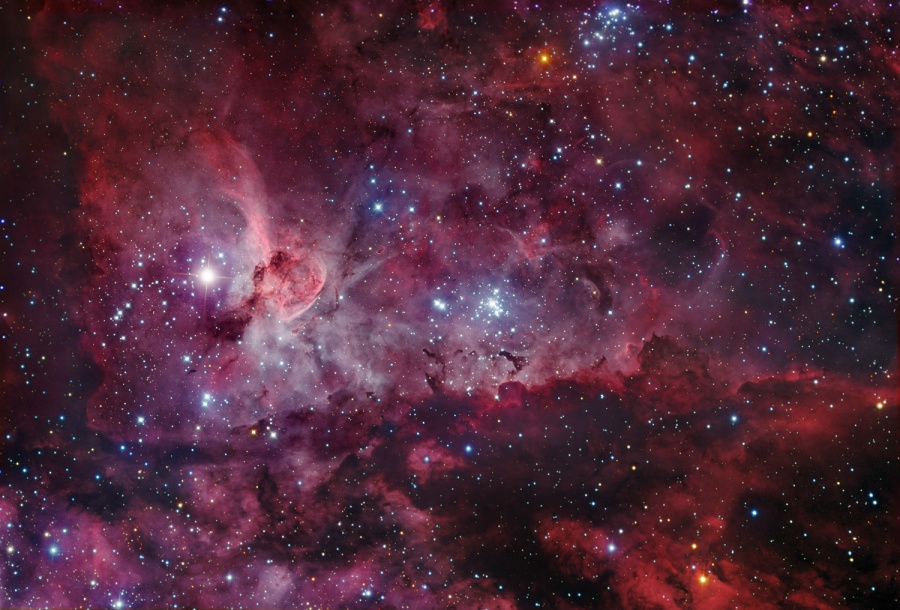JUNE 9, 2011
The Great Carina Nebula
EXPLANATION
A jewel of the southern sky, the Great Carina Nebula, also known as NGC 3372, spans over 300 light-years, one of our galaxy’s largest star forming regions. Like the smaller, more northerly Great Orion Nebula, the Carina Nebula is easily visible to the unaided eye, though at a distance of 7,500 light-years it is some 5 times farther away. This gorgeous telescopic portrait reveals remarkable details of the region’s glowing filaments of interstellar gas and obscuring cosmic dust clouds. Wider than the Full Moon in angular size, the field of view stretches nearly 100 light-years across the nebula. The Carina Nebula is home to young, extremely massive stars, including the still enigmatic variable Eta Carinae, a star with well over 100 times the mass of the Sun. Eta Carinae is the brightest star at the left, near the dusty Keyhole Nebula (NGC 3324). While Eta Carinae itself maybe on the verge of a supernova explosion, X-ray images indicate that the Great Carina Nebula has been a veritable supernova factory.
Image Credit & Copyright
Robert Gendler
(Processing),
Ryan Hannahoe
(Acquisition)
Additional data from the
ESO/Danish 1.5m
telescope at La Silla, Chile
(R.Gendler, J.-E.Ovaldsen, C.Thöne, C.Feron).


